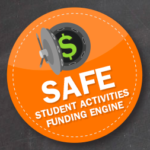My most recent post focused on gearing up towards your senior year and finding a thesis adviser. I decided to continue this mini “preparing for your senior thesis” series by providing some tips on funding your research! The infamous senior thesis is such a daunting thing to think about as a junior because it is not always clear how early you should begin to plan for it and what steps you should take. At the beginning of the year, I attended an information session through the Woodrow Wilson School regarding thesis research funding. During that meeting, the speakers told students that they should start working on applications for funding as soon as possible if they wanted to receive money for their endeavors.

This scared me. I’ve always been a planner; I love planning ahead instead of procrastinating. I knew I wanted to do my thesis research during the summer before senior year, but after that information session, I began thinking that everyone else had the same idea. How would there be enough funding for all of us if we were all planning on applying for money?
However, after a few conversations with seniors and faculty, I realized that most students—at least in the Woodrow Wilson School—don’t use the summer before senior year for research. This did wonders for my anxiety, but it still left me with the task of funding my research!
The first thing I did was log in to the Student Activity Funding Engine (SAFE) to take a look at the Woodrow Wilson School funding application. While there, I saw that there were a ton of other funding opportunities available from other departments or programs. Each funding opportunity has its own set of restrictions, which you should read beforehand. The Office of Undergraduate Research also has a senior thesis research funding program, which is open to all A.B. students and is the largest funder of senior thesis research projects.
After looking at the funding application, I wrote down all of the questions I had to fill out on a separate document, such as the project budget and statement, and the proposed itinerary. Then, I spent the next few days filling out the questions and editing my responses so that they could be as perfect as possible. For me, the most difficult part of the application was filling out the itinerary and itemizing the budget; comparing flight prices and looking at potential Airbnbs in my proposed location was difficult because I wasn’t even sure how long I would be there! I knew that I wanted to analyze the humaneness of the American prison system in comparison to the Norwegian system, which has been called the most humane in the world. (Read this post to learn how to choose a thesis topic!)
Next, I had to find a faculty member that I could list as an adviser for my summer research project in my funding application. For Woodrow Wilson School students, this does not necessarily have to be your thesis adviser, but it can be if you want it to. This made me feel like I had to rush to find an adviser before I could even begin researching! In the end, I chose my JP adviser, who had previous experience researching the Norwegian prison system, and I also began the process of looking for a thesis adviser. Choosing my JP adviser as the faculty member linked in my funding application was easy because I had gotten to know him well during my JP process, and he was the inspiration behind my thesis topic! However, I recognize that the process may not be the same for everyone. If you haven’t already selected your thesis adviser, choose a faculty member you know and are comfortable with so they can advise you on the feasibility and estimated budget of your project. For assistance with the application process in SAFE, you can sign up for office hours via WASE with Crystal Dixon, OUR’s Program Coordinator. You should also consider signing up for the Crafting your Proposal and SAFE information Workshop to be held on Friday February 28 from 12 – 1:30 pm in McCormick.
Finally, some research projects that involve human subjects require Institutional Review Board (IRB) approval (see this post for helpful tips on navigating the IRB!). As I was filling out my funding application, I realized that my proposed project would most likely require IRB approval, so I emailed irb@princeton.edu to confirm. It’s always better to ask if you’re uncertain! (The IRB often takes months to fully process your request, so get started on that application early! It took me about three months to get approved.)
Applying for research funding can be a long and complex process, but hopefully what I learned from my process will help you!
—Andrea Reino, Social Sciences Correspondent

